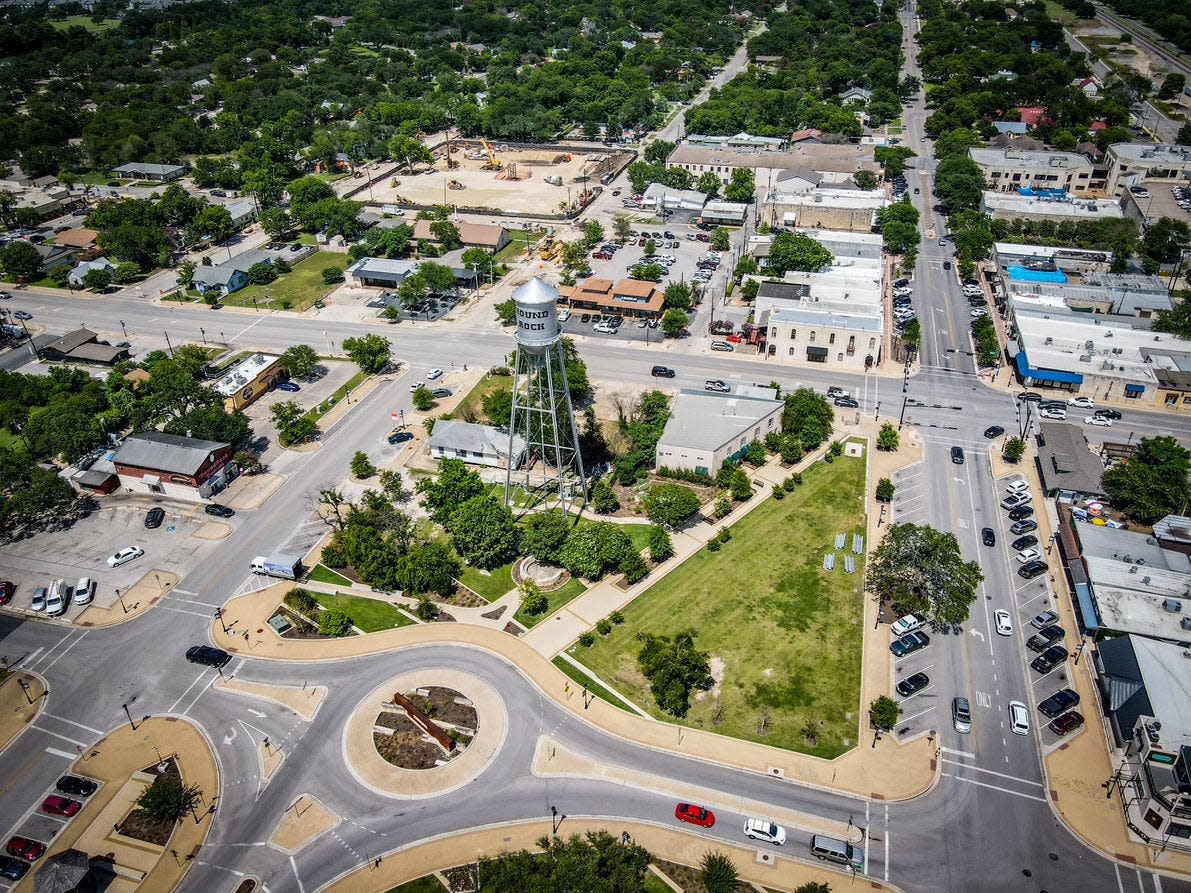Williamson Commissioner Cook: One eye on future, one on past

With 2023 a few weeks away, what will it hold for Williamson County? Well, let me shake my snow globe crystal ball for a preview.
The guarantees
The 88th Texas legislative session will begin in January, resulting in information overload with bills that hurt us and bills that help us. The part-time status of our Legislature runs at such a quick clip every two years that many bills are not thoroughly vetted prior to becoming law. It would be so nice to have a full-time Legislature allowing more appropriate time to thoroughly vet proposed bills.
In the last session, legislators attempted to prevent local county governments from having “hired guns” at the Lege each day watching for negative bills and speaking up for local governments to help us at the county level. Our Texas Association of Counties is magnificent in lobbying and educating those willing to listen in the Legislature. What goes on at the capital is a major time drain for us in local government.

Water shortages abound and wastewater treatment plants are expanding across the county to appropriately handle the volume from all our growth. Vigilance on the part of our water plant managers has provided for clear streams despite reduced volume of water flow and increased output from wastewater plants — not perfectly, but with intense scrutiny and vigilant teams. Our past has relied on municipalities to acquire water and rural areas to drill wells.
Our present population means scarce availability of both surface and ground water. The Brazos River Authority, serving most of Wilco, reports 99.9% of its water is spoken for. As for underground water, we do have the Edwards Aquifer in the narrow Balcones Fault area in Wilco, but the vast majority of our county and wells are in the expansive Trinity Aquifer zone, which lacks the support of limestone to rapidly catch and carry water. The Trinity only recharges with 4% of the rainfall as it has layers of clay for water to pass through and needs underground fault lines for storage.
In an Oct. 27, 2017, San Antonio Express News article, Robert R. Puente, San Antonio’s Water System’s president and CEO since May 2008, the longest-serving leader of one of the nation's largest utilities delivering water and wastewater services to more than 1.8 million customers, said, “Buyer, beware, because that Trinity (Aquifer) is very unpredictable. Well, actually it is predictable. In a drought, you can’t rely on it.”
That easterly moving major drought line has now come to roost in Williamson County. That and the additional wells being drilled are wreaking havoc for existing well users in Wilco.
Housing shortages abound, whether affordable houses or apartment units, especially more affordable rental units. We have limited infrastructure in place, primarily within municipal city limits. The extraterritorial area just outside city and town limits can’t count on the city infrastructure being available for any development. Taylor residents are stressing about that right now. If the aquifer is going dry, what is the land worth? Where can development go? We’ve seen massive growth in the county outside of city limits. Developers may have been paying for cities — Georgetown comes to mind — to extend water and wastewater lines to many new municipal utility districts, but cities have limited water supplies to provide to non-city residents.
Supply chain limits, such as for windows, plumbing fixtures and electrical components, also stop building in its tracks. Rental units don’t receive tax exemptions from increased taxation due to rising appraisals as homeowners do such as homestead, over 65 and disability carveouts. The property owners can’t absorb the tax burden but must pass it on to their renters in increased monthly rates.
Lack of affordable housing then impacts businesses that cannot attract needed workers like in construction as we saw in Samsung’s need for a recent three-day recruiting job fair. Restaurants are closing for similar staff shortages. Even with roommates, many can’t afford rent here.
Lack of day care is another hurdle for working families; day care workers are some of the lowest paid and increasing their salaries cannot offset the costs to the families using their services that is already stressing family budgets. There is little offered for kids of shift workers.
And then there’s a huge lack of broadband for many county residents we must address, electrical charging stations for the increasing presence of EVs (oh, the grid load), aggregate mines and road destruction, and the need for more roads.
It's just plain hard to be so attractive with strong schools, dynamic cities and our Central Texas location, but out of reach for many.
The surprises
Climate change will continue its negative assault on the planet. We will remain in an extreme drought phase. Will farmers be able to plant their spring crops? Cattle are being sold in high numbers as feed is too expensive to provide. September brought us continued high temperatures and a record 11 high ozone action days, and October had four more. The February 2021 winter storm’s impact on the electric grid may pale with this coming summer’s cooling needs.
Finally, there’s the economy. Economists are calling for a global mild recession with recovery by mid-year, then a gain in economic strength in a late year rebound. The negative market yields of 2022 were unmatched in the past 50 years. Historically bonds have never posted three years of loss; we’ve already had two years of loss. Then there’s the unpredictable behavior of our federal government and inflation management.
I don’t mean to be the scrooge of 2023. We will all have major challenges and will need to develop some creative solutions.
Terry Cook is county commissioner of Precinct 1, which includes most of Round Rock, most of Austin in Williamson County and part of southern Cedar Park.
This article originally appeared on Austin American-Statesman: Williamson Commissioner Cook: One eye on the future, one on the past

